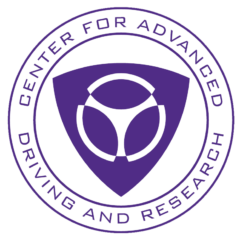It’s National Distracted Driver Awareness Month and like every April since our government implemented this in 2010, the internet and media outlets are broadcasting a host of messages about how dangerous it is to drive distracted. Yet, after 12 years of dedicating a full month’s focus towards raising awareness and attempting to change driver behavior, the problem continues to grow worse every year.
Does anyone ever wonder why we don’t have Distracted Pilot Awareness Month or for that matter, Athlete, Salesman, Firefighter and Distracted Physician Awareness months? It sounds silly to even verbalize that, doesn’t it? But the truth of the matter is, we don’t need a legislative action nor a nationally recognized focus on the consequences of distraction in these activities because the issue doesn’t exist.
Think about it. Would you fly if most Pilots were proven to engage in this behavior? Would you want your surgeon to be operating on you while they’re distracted, taking selfies, and sending texts to their friends? Would you buy a car, home or appliance from a salesman who wasn’t attentive to YOU during the purchase? How about when you dial 911 because your house is on fire? Is it common place for firefighters to show up and take group selfies or make a Tic Tok video before trying to extinguish the flames consuming your home? Would you pay to obtain tickets to an athletic game or concert where the performers or players routinely missed plays, dropped balls or forgot words and missed notes because they were distracted? Of course you wouldn’t—no reasonable person would find any of these behaviors acceptable.
So, why, in an activity that can (and often does) kill and maim so many people every year, do we have to create laws to make this behavior illegal and dedicate a month per year to raise awareness of the glaringly obvious dangers it poses? Quite simply it’s because too many drivers don’t take driving seriously, and don’t hold the same beliefs about their responsibilities for driving as they do for all the other things they value in life. As a result, we create and impose these laws for automobile drivers because, as a culture, we’ve lost sight of what should be required for a driver to qualify for a driver license and drive in a safe, responsible manner.
Consider this issue from a car-control perspective. The most fundamental principle for safely controlling an automobile is the need for traction—securing “grip” between the tires and the surface of the road. Without traction, there is no control. Traction, by definition, is the force that moves, pulls or in some way, directs an object towards an intended result, which in car terms should be the safe arrival at our destination. By contrast, however, DIStraction moves, pulls or in some way, re-directs an object AWAY from an intended result and when that result involves the requirement to safely control an automobile, choosing to become distracted means choosing to drive void of control.
The reality is it only takes 2 seconds to set a fatal crash in motion. Any driver who consciously chooses to use those two seconds for something so unrelated to their safety (and the safety of other drivers on the road), is akin to temporarily sliding into the passenger seat and leaving the ultimate control of their vehicle to a brainless, sightless 3500-pound weapon they’re traveling in. Something to think about next time your phone alerts you to an incoming text message you think might be important. Is it worth dying over or killing someone else? Those are the stakes in that decision.
Seriously, if we’re going to dedicate a month per year to raising awareness of something, perhaps it should be the need to implement higher standards for the qualifications to possess a driver license. We’ll never change these dangerous behaviors until we change the “beliefs” producing them and raising the qualification standards seems like a good place to start.


